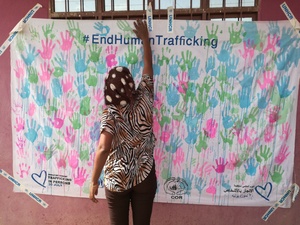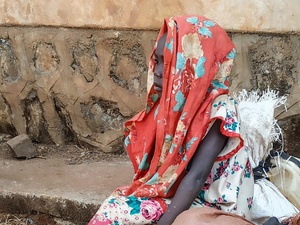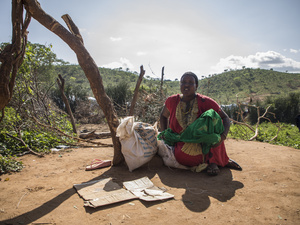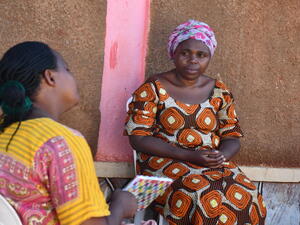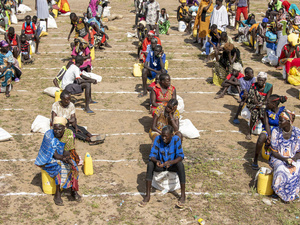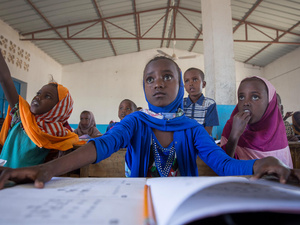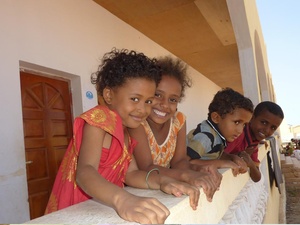Djibouti: Thousands apply for asylum ahead of deadline
Djibouti: Thousands apply for asylum ahead of deadline
As the government in Djibouti extended a 31 August deadline for the departure of illegal immigrants from the country, UNHCR staff were struggling to cope with an estimated 10,000 people who thronged a transit centre outside the Djibouti capital over the weekend in a bid to apply for asylum and legalise their stay in Djibouti. UNHCR staff working with Djibouti government officials had by yesterday begun to separate the large crowds of people into three distinct groups: asylum seekers with or without attestations; Somalis from areas south of the Somali capital, Mogadishu; and others who are likely to include villagers from the local community.
Government officials at the centre are repeatedly urging those who are not genuine asylum seekers to leave the centre. The government has said it will provide transport for those who need to leave.
Last week, potential asylum seekers, estimated at some 4,000 people, were asked to gather at a stadium in the Djibouti capital, Djibouti, ahead of their transfer to a transit centre at Aour-Aoussa, some 120 km away. The facility at Aour-Aoussa, close to the Ethiopia/Djibouti border, is a former refugee camp which hosted mainly Ethiopian refugees before its closure in 1999 when many of the camp residents returned home.
But by Saturday, the stadium was teeming with illegal immigrants mixed with asylum seekers, the former anxious to find ways of legalising their stay in Djibouti ahead of the 31 August deadline for their departure from Djibouti. The large turnout at the stadium on Saturday quickly outstripped the vehicle capacity arranged by UNHCR, which forced the government to provide additional trucks to transport the waiting crowds at the stadium to the transit centre.
All activities at the transit centre were completely paralysed by the unruly mobs at the centre. Neither registration of genuine asylum seekers nor food distribution could be started over the weekend.
On Sunday, UNHCR intervened with government officials who have since deployed military personnel to man the perimeter of the transit centre and police to instil order inside the facility. Other government officials have also been sent to manage the transit location. Food distribution was started and a health centre is now also operational.



